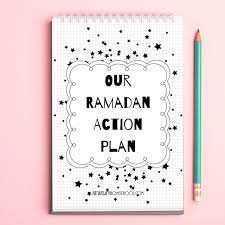
The Prophet (saw) said about the blessed month of Ramadan:
“And it is a month, the first (part) of which is mercy, the middle ( part) which is forgiveness, and the last( part) which is freedom from the Fire.” [ Ibn Khuzaimah]
Allah (swt) in His infinite compassion and generosity has given us many ways to seek His forgiveness at any time. This is something that we can easily do throughout the day.
One Minute of tasbeeh

Salma Umm Rafi said: “ O Messenger of Allah, teach me some words, but not too much for me.” The Messenger of Allah ( swt) said: “ Say Allah is the greatest” ten times. Allah Almighty will say, “ This is for me.” Say “ Glory be to Allah” ten times. Allah Almighty will say, “This is for me.” Say “ O Allah, forgive me.” Allah will say “ I have done so.” If you say it 10 times, Allah will say each time, “ I have done so.” [ Tabarani]
This is a reminder that is simple and quick and can therefore be said at any time. Simply by saying Allahu Akbar ten times and SubhanAllah ten times, and then seeking Allah’s forgiveness, Allah will promise to forgive us by saying I have done so every time we ask his forgiveness.
Charity

Giving charity is not only a way to obtain reward while helping others. Charity is one of the easiest ways that we can show good deeds. It could be done by simply smiling at someone, saying a good word, or if you are able to, a quick on-line donation.
Forgive and You Will be Forgiven

The Prophet ( saw) said:, “ Be merciful to others and you will receive mercy. Forgive others and Allah will forgive you.” [ Ahmad]
During these second ten days, we need to make sure that we forgive anyone we have had a falling out with. If we are holding any sort of grudge, anger, bitterness, or pain, we need to let it go. Holding on to these feelings will help neither one of us. In fact we could be missing out on Allah’s forgiveness because of it. We must take the first steps towards healing and repairing those relationships, as Allah forgives those who have a forgiving nature.
Make Daily du’a for others

Not only should we pray for our own forgiveness, but we should also seek forgiveness for our loved ones as well.
Abdullah ibn Sarjis (ra) reported “ I met the Prophet (saw) and I ate a meal of stew with him. I said, “I ask Allah to forgive you, O Prophet.” The Prophet said, “ Yes and for you as well.” Then the Prophet recited the verse, “Seek forgiveness for your sins and for the believing men and women as well” [47:19]. [Muslim]
Seeking forgiveness for others is therefore the Sunnah of the Prophet (saw). Plus when you make du’a for others, an angel requests that Allah answers the same du’a for you.
The Messenger of Allah (saw) said, “ There is no Muslim servant who supplicates for his brother behind his back but that the angel says, “ And for you the same.” [Muslim]
Daily Iftar for Others

Another way that giving to others can bring forgiveness is by providing ifta for a fasting person. This does not necessarily mean cooking for them. It could be something as simple as giving them dates or providing them with a glass of water. You can also make online donations to the many organizations that provide meals to the many hungry people all over the world.
The Messenger of Allah ( saw) said, “ Whoever provides iftar for a fasting person in it ( Ramadan), then that shall be a forgiveness for his ( minor) sins and freedom from the Fire.” [ Ibn Khuzaimah]
Make Wudu as often as possible

The Messenger of Allah ( saw) said: “ A Muslim man does not perform ablution in an excellent manner and then performs prayer, but that Allah will forgive him for what occurred between his prayer and the next.” [ Bukhari]
One thing that we can do is increase our voluntary prayers throughout the day and make Wudu before all of them.
Pray at night

All that was mentioned above are forms of worship that can be done in a few minutes at any time throughout the day, but it is also encouraged to a good part of our night in prayer, if we are able to. Even though many of us are not able to go to the masjid, we can pray Taraweeh by ourselves or with our families.
Abu Huraira reported, “ The Messenger of Allah ( saw) encouraged standing for the night prayer during the month of Ramadan, without imposing it on them. The Prophet would say,” Whoever stands in prayer during Ramadan due to faith and seeking reward, his previous sins will be forgiven.” [ Bukhari]
Trust in Allah’s Forgiveness

This Ramadan, as you seek Allah’s forgiveness, it is important to trust Allah and hold on to hope. Whether you are making du’a, giving charity, or praying at night, trust that Allah (swt) will forgive you and have faith in His infinite mercy.
“ O child of Adam indeed, as long as you have called upon Me and placed your hope in Me, I forgave you and did not mind, despite whatever was in it, ( i.e. despite what you have done.) O child of Adam, if you had sins piling up to the clouds and then asked for My forgiveness, I would forgive you and I would not mind. O child of Adam, if you came to me with enough sins to fill the earth and then you met Me, I would come to you with enough forgiveness to fill the earth. [Tirmidhi]
Do not ever doubt in Allah’s forgiveness. In these second ten days, put all of your effort into seeking His forgiveness. Trust that Allah will see our sincerity and repentance and erase all of our sins InshaAllah. May Allah make us among those who are forgiven this Ramadan. Ameen
Sister Rebecca is a SAHM living in Houston Texas. Married for 13 years with two children, and a revert since 2014, her hobbies include cooking, reading, and spending time with family.











 holding a place of such importance and benefit, the the Holy Prophet Muhammad ( pbuh) stated that the observance of daily prayers that separates belief from disbelief. It is an essential part of our faith. The word Fajr means dawn in Arabic. In the same way that the sun
holding a place of such importance and benefit, the the Holy Prophet Muhammad ( pbuh) stated that the observance of daily prayers that separates belief from disbelief. It is an essential part of our faith. The word Fajr means dawn in Arabic. In the same way that the sun  sustains all life on earth and causes all things to grow, it is in that same way that Fajr provides light and guidance, strength, and support to our hearts ♥️. Fajr ensures that we begin the day with light and life. Starting your day, connecting with Allah and being in the presence of his angels, sets the tone for the entire day, blessing your day with barakah ( blessings) and noor ( light). The importance of prayer is conveyed constantly throughout the Quran and was also stressed by our Prophet Muhammad ( pbuh)
sustains all life on earth and causes all things to grow, it is in that same way that Fajr provides light and guidance, strength, and support to our hearts ♥️. Fajr ensures that we begin the day with light and life. Starting your day, connecting with Allah and being in the presence of his angels, sets the tone for the entire day, blessing your day with barakah ( blessings) and noor ( light). The importance of prayer is conveyed constantly throughout the Quran and was also stressed by our Prophet Muhammad ( pbuh)
All knowledge, it is said, comes from experience, but does that not mean that the more we experience, the wiser…